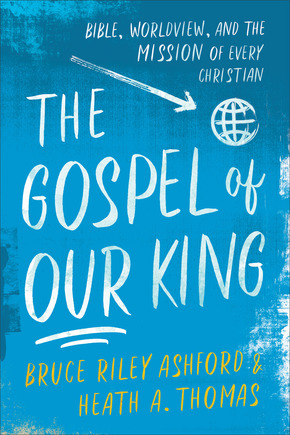In order to understand their purpose as human beings, Christians need a good grasp of God's purposes for his creation as expressed in the Scriptures and the calling he gives to followers of Jesus. This book has been written to make these matters clear.
The book opens with an introduction, followed by two main parts with an ‘interlude’ between them. The introduction sets the scene, explaining that ‘[t]he Bible tells the story of the King’ (2). The opening chapters of the book, therefore, ‘trace the Bible’s main storyline’ (2). The authors take a consciously ‘theological’ (God-centred) and Christological (Jesus-centred) approach to their reading of Scripture (3-4). The authors then introduce the concept of ‘worldview’ (6-7), highlight the importance of ‘gospel’ language (7), and then highlight how the ‘biblical story’ relates to mission.
Part one is composed of four chapters entitled, ‘Creation’, ‘Fall’, ‘Redemption’, and ‘Restoration’. The authors explain these categories with careful discussion of selected biblical texts. It is clear that the authors are drawing on excellent academic studies, some of which are referenced in footnotes, but the book is very readable and is not just for students and preachers.
The ‘interlude’ draws together the themes of ‘worldview’, ‘gospel’, and ‘mission’. While many of us may not use the term 'worldview' regularly, the concept is very useful as a means of grasping that everybody, without exception, has a number of 'basic beliefs' that shape the way we understand our life in this world. The authors provide brief but clear discussions of the key terms, ‘gospel’ and ‘mission’. While these are more familiar to most people than ‘worldview’, that can be a problem when definitions are assumed rather than carefully considered. While some readers may quibble with the positions the authors adopt, I found their views to be well-founded on careful reading of Scripture.
Part two considers four ‘aspects’ of Christian mission: theological, social, cultural, and global. In the course of these four chapters, Ashford and Thomas discuss (among other topics) how the gospel speaks to ‘our secular age’; the witness of the church (taking account of its increasingly global and multi-ethnic character); the relationship of Christianity to culture; God’s purposes for ‘the nations’.
This book is an excellent guide to thinking carefully about biblical theology, mission, and the ways in which these two fields relate to each other. I warmly commend it to anyone who wishes to dig more deeply into these vitally important subjects.
This book is available to purchase from Book Depository.
Alistair I. Wilson, Edinburgh Theological Seminary

